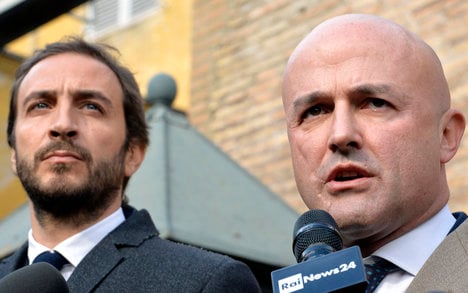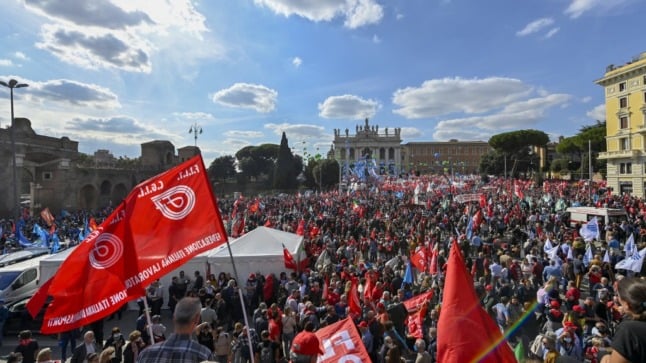Addressing the opening hearing in a rarely-used Vatican courtroom, journalist Emiliano Fittipaldi said he was “incredulous” at finding himself in the city state's court on charges that do not exist in Italy.
“I did not write anything false or defamatory,” he told the court, arguing that his right to publish news based on material obtained from secret sources was protected by the Italian constitution and international human rights conventions.
Fellow journalist Gianluigi Nuzzi described the trial, in which all five defendants face up to eight years in prison, as “Kafkaesque and absurd.”
Nuzzi, who was instrumental in breaking the first big Vatican leaks story in 2012, said that he had only met his court-appointed lawyer for the first time one hour before the trial began and had not had time to even read the indictment documents.
Fittipaldi said the charges against him were framed so vaguely it was impossible to know what he was actually supposed to have done.
Replying for the prosecution, Roberto Zannotti said the case was “not one about the freedom of the press” but rather about the way the journalists put pressure on the three other defendants to feed them classified material.
“The charges clearly describe conduct involving the use of pressure to obtain documents and information illicitly,” the prosecutor said.
The judges threw out Fittipaldi's objection after a 45-minute adjournment.
The case was then adjourned until Monday, when Spanish priest Lucio Angel Vallejo Balda, currently being held in a Vatican cell, will take the stand.
The priest arrived at court in a police car, meeting his lawyer for the first time at the entrance.
By then, Nicola Maio, Vallejo Balda's assistant, was already inside the courtroom, pacing up and down nervously.
Their co-accused, PR expert Francesca Chaouqui, meanwhile was poring over a document which appeared to contain transcripts of WhatsApp conversations between Fittipaldi and Vallejo Balda.
'Ridiculous charges'
All five accused have been charged with obtaining and disclosing confidential papers “concerning the fundamental interests of the Vatican State”, under punitive legislation introduced in 2013 and being used for the first time.
Vallejo Balda, Chaouqui and Maio are additionally charged with organised criminal association in order to obtain the documents they allegedly leaked to the journalists.
The law was enacted a year after Pope Benedict XVI's butler leaked damaging information about Vatican in-fighting which plunged the Holy See into crisis and, it is widely believed, contributed to the pontiff's decision to retire.
Nuzzi and Fittipaldi used the material they obtained as the basis for books depicting financial irregularities and uncontrolled spending in the Holy See.
Nuzzi's book also contains a transcript of secret recordings of Pope Francis vociferously complaining about the Vatican throwing money away through poor financial management.
Both books suggest Church money raised through donations intended for charitable operations was diverted to help pay for lavish renovations of senior clergy's grace-and-favour apartments.
The Vatican has not denied the veracity of the recording of Francis venting his fury, or the authenticity of the documents.
Instead, officials have framed the revelations as old news based on problems which Francis has already addressed through his reforms, a clampdown on profligacy and a clean-up of the Vatican bank.
The Italian journalists could have declined to attend the trial and forced the Vatican to initiate what would have been complex, potentially embarrassing, extradition proceedings.
But they both said they had decided to appear to expose the draconian nature of their prosecution.
“To have not come would have given the impression I was hiding from charges that I don't accept,” Fittipaldi told AFP during a break in the proceedings.
“I find them ridiculous and I wanted to come here to defend myself.”
Nuzzi added: “I've done nothing wrong. I have nothing to hide and I wanted to have the possibility of seeing what I am charged with.”






 Please whitelist us to continue reading.
Please whitelist us to continue reading.
Member comments